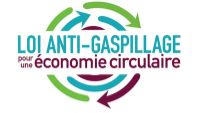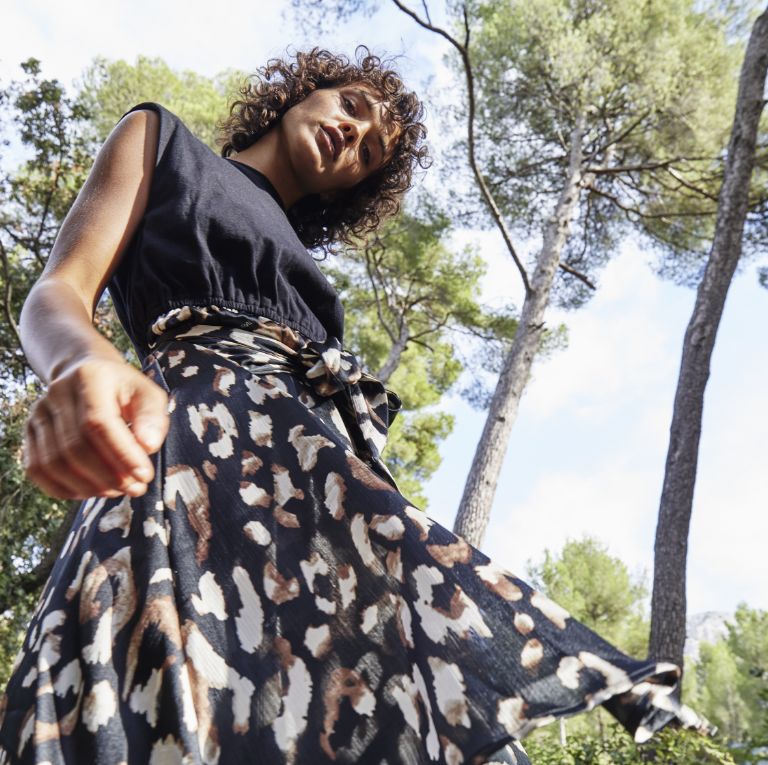
More responsible fashion.
We are obviously aware of the environmental impact of manufacturing textile products.
Since 2020 we have accelerated our transformation to fight against global warming and to act against the depletion of natural resources, especially water.
Our Kaporal Impact clothing.
In 2022, 35% of our collection will contain eco-responsible materials. By 2025, our objective is 60%.
Our Kaporal Impact garments are made up of 65% organic cotton (Gots or OCS certified), but also recycled polyester (GRS certified), recycled cotton and natural materials, such as linen, hemp or tencel.
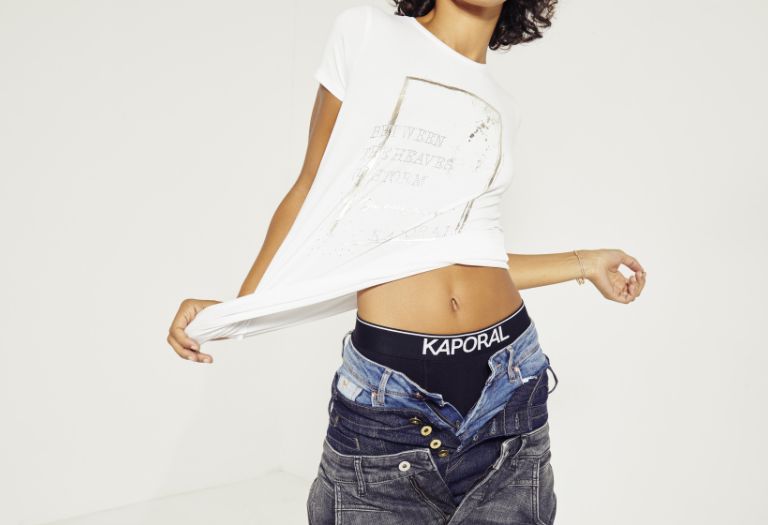
TARGET 2025 :
60% eco-responsible.

Organic cotton
is cotton grown without pesticides, insecticides or chemicals.
Natural compost replaces chemical fertilizers and neither chlorine nor heavy metals are used in the manufacturing process.

Polyester
is a synthetic fibre derived from oil.
Recycled polyester is a material derived from the recycling of plastic bottles. It is therefore less energy-intensive to manufacture and has a lower environmental impact.

Recycled cotton
comes from clothes collected by sorting organisations or companies. The fibre is deconstructed to be transformed into a new recycled material.

Natural materials
Hemp is a natural and environmentally friendly textile fibre because it requires very little water to grow. Its rapid growth makes it easy to cultivate and resistant to drought. Tencel (or lyocell) is an ecological material created from wood pulp. It is breathable and durable, and its softness is similar to that of silk. It requires very little water during its manufacture.
Nos jeans Kaporal Impact.
Kaporal Impact. The blue vein of responsible denim
30% of our denim collection is made up of recycled materials and eco-friendly washes, our objective is 50% by 2023.
Our Kaporal Impact programme launched in 2019 carries our vision of ecological denim. A jean that respects natural resources and more particularly water. At each stage of the design and manufacture of our Kaporal Impact jeans, we are committed to producing better: from the origin of the fibre to the indigo dyeing, the treatments are chosen to consume very little water. We use recycled or organic polyester and cotton fibres. And our indigo dyes are specially designed to remove micro plastics from our jeans.
Our eco-designed jeans are made with certified materials and processes:
1.
Denim fabrics made from organic cotton or recycled cotton or recycled polyester fibres. We use certified materials such as recycled polyester: Repreve
2.
Cotton-hemp fabrics, a natural fibre with thermoregulatory properties that requires no chemicals and very little water to grow.
3.
Galvanisation techniques for buttons that allow for reduced use of water, electricity and 90% steel.
4.
Less polluting treatments to patinate the jeans, thus drastically reducing their need for energy and water: laser, ozone, dry indigo dyeing.
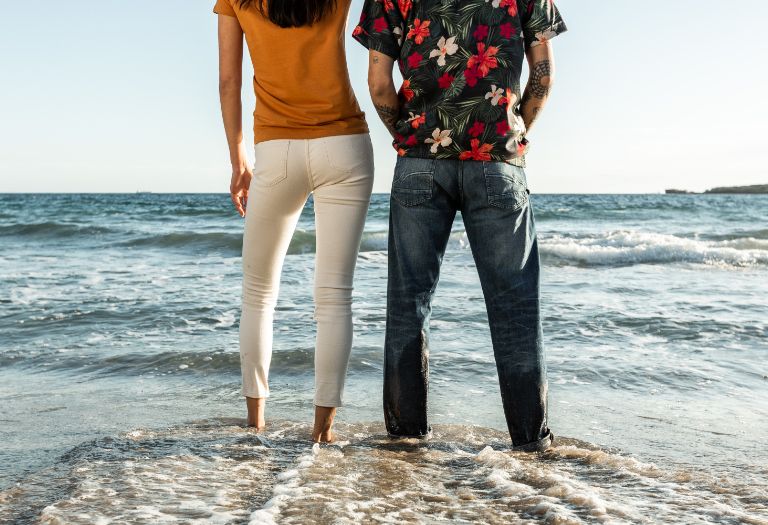
30% of our denim collection is made of recycled materials and eco-friendly washes
Get to know our partners better.
We want to act responsibly by striving to put ethics, product safety and respect for human rights at the centre of our concerns, both for our partners and for our employees.
Since 2020, we have started an audit phase for all our suppliers and 15 of them have been audited by independent experts on social and environmental issues. Our objective is to audit 100% of our suppliers during 2023.
Extend the life cycle of products.
Kaporal supports the circular economy in France through textile recycling with our Kaporal Impact Recycling operation. At the heart of our commitment: denim.
Our priority actions: recycling, upcycling, consuming less water.
For the past 9 years, we have been organising large collections of jeans twice a year throughout our network of shops.
By the end of 2021, we will have collected 40 tonnes of jeans.
What happens to these jeans?
recycled
into thermal and acoustic insulation called "Métisse" thanks to our partner Le Relais. 5,000 pairs of jeans are enough to insulate 5 houses of 100m2.
UPcycled
in capsule collections, using young designers and the A'TIPIK workshops in Marseille. Since 2019, four collections made from old jeans, respectful of the environment, have been created.
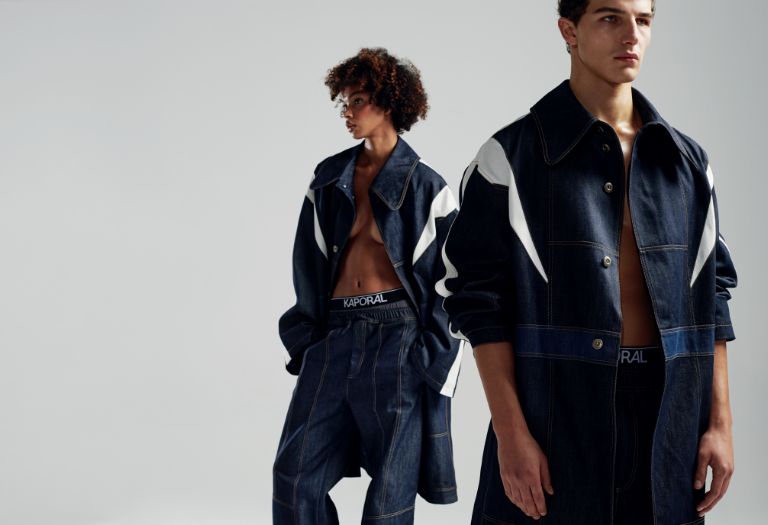
4 100% upcycled collections
Our packaging
From summer 2023, all our packaging will be plastic-free.
They will be gradually replaced by recyclable cardboard and paper envelopes.
Maintain your clothes.
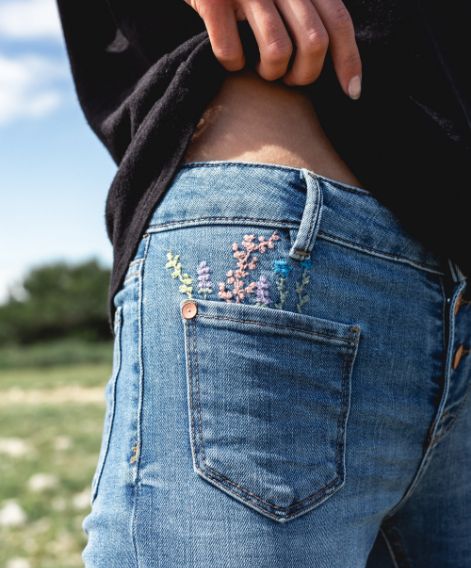
You too can reduce your ecological footprint and preserve the life of your clothes with these care and washing tips...
• Contrary to popular belief, machine washing uses less water than hand washing. Up to 30% of water is saved.
• Wash your clothes at the lowest possible temperature (30 or 40°), which will save water and energy and your clothes will wear out less quickly.
• Don't "overload" your machine, but wait until it is full to run it. It washes better, the clothes are better protected from the drum and the volume of water is saved. The half-load programme is also a good option.
• Prefer to air dry: more economical and does not damage your clothes
• Wash your jeans less often: scrub stains by hand and air them out
• Reduce the spin speed, your clothes will thank you
• Choose environmentally friendly detergents
Loi AGEC.
The law "Anti-waste for a circular economy" (AGEC) promulgated on 10 February 2020 will change our lifestyles in order to move towards a more sustainable model of society
source https://www.ecologie.gouv.fr/
Like all companies in the clothing sector, we are concerned by the new provisions. For textile products, two additional pieces of information will be mandatory as of 1 January 2023: the geographical traceability of the three main manufacturing stages (weaving, dyeing, assembly/finishing) as well as a warning for mainly synthetic textiles that release microplastic fibres during washing.
